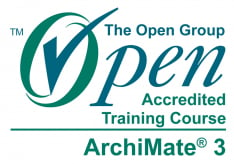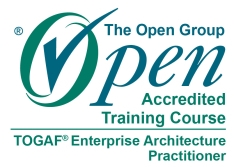 To help and support our clients we are providing a limited number of 250 daily discount codes. Hurry, first come, first served!
To help and support our clients we are providing a limited number of 250 daily discount codes. Hurry, first come, first served!
ArchiMate® Training FAQs

Why we're the go to training provider for you

Best price in the industry
You won't find better value in the marketplace. If you do find a lower price, we will beat it.

Trusted & Approved
We are accredited by PeopleCert on behalf of AXELOS

Many delivery methods
Flexible delivery methods are available depending on your learning style.

High quality resources
Resources are included for a comprehensive learning experience.




"Really good course and well organised. Trainer was great with a sense of humour - his experience allowed a free flowing course, structured to help you gain as much information & relevant experience whilst helping prepare you for the exam"
Joshua Davies, Thames Water



Looking for more information on ArchiMate® Training
 ArchiMate Cheat Sheet: A Quick Reference Guide
ArchiMate Cheat Sheet: A Quick Reference Guide Archimate Notation & Concepts: A Complete Breakdown
Archimate Notation & Concepts: A Complete Breakdown What is Archimate Model Language? - A Comprehensive Guide
What is Archimate Model Language? - A Comprehensive Guide Detailed Guide on ArchiMate Cookbook: Designs and Patterns
Detailed Guide on ArchiMate Cookbook: Designs and Patterns Ultimate Guide For Archimate Core Framework
Ultimate Guide For Archimate Core Framework Archimate Modelling Tool: Complete Overview
Archimate Modelling Tool: Complete Overview
















 If you wish to make any changes to your course, please
If you wish to make any changes to your course, please


